June is National Indigenous History Month, to celebrate we wanted to explore and appreciate the harmonious merger of age-old tradition with contemporary creativity found in Indigenous-inspired design.
Through their rich cultural traditions, customs, and aesthetic motifs, the First Nations people of Canada imbue both interior and exterior designs with a deep connection to the natural world, community, and Indigenous heritage. When implemented with sensitivity and respect, this style can serve as a profound link to a diverse and intricate history.
Key Principles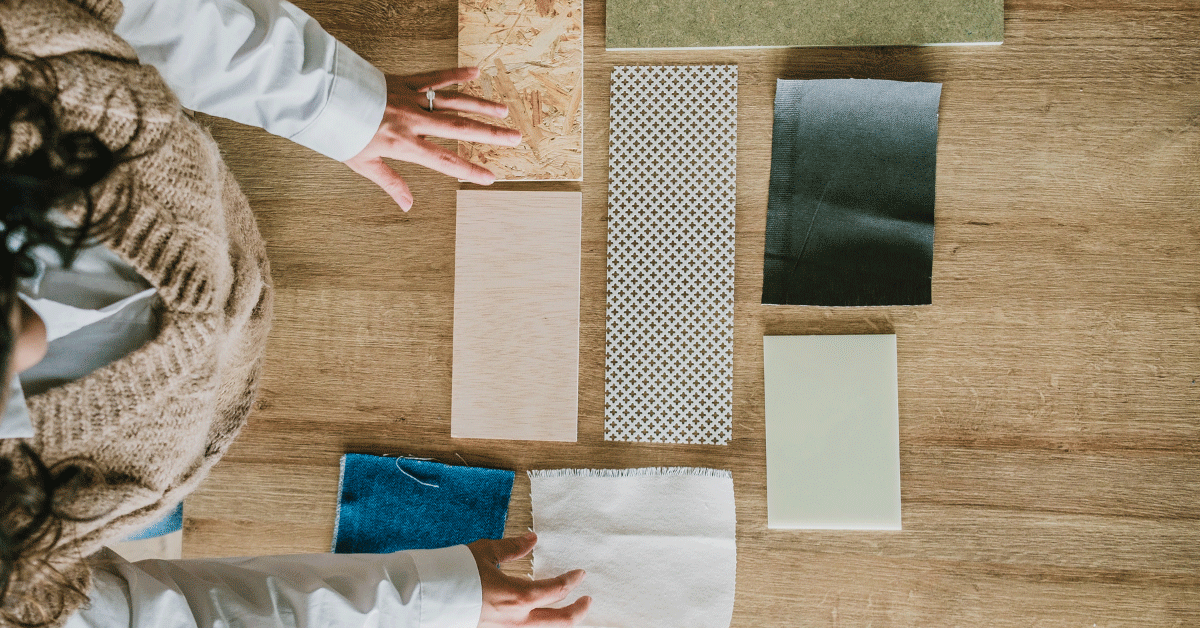
Whether your preference leans towards a more traditional Indigenous-inspired design or a modernized twist, there are certain core principles to keep in mind when incorporating this design style: materials, colour palette, patterns and motifs, artwork, furniture, and, most importantly, respect.
Materials: First Nations practices champion the use of natural materials like wood, stone, leather, fur, and textiles such as wool or cotton. Sourcing these materials locally, where possible, aligns with the Indigenous commitment to sustainability and deep respect for the land.
Color Palette: Indigenous inspired designs draw their color palette from the natural environment, featuring warm earth tones, cool blues and greens, and vibrant accents reminiscent of traditional First Nations artwork. Look for opportunities to incorporate colors like turquoise, coral, and sunflower yellow, along with the use of black and white for contrast.
Patterns and Motifs: Intricate patterns form an integral part of the First Nations aesthetic. Incorporate geometric designs, animal motifs, and symbolic representations inspired by tribal storytelling and mythology into various design elements like wall art, upholstery, rugs, and other décor pieces.
Artwork: Traditional masks, totem poles, sculptures, and paintings play a pivotal role in Indigenous interior design. These pieces add depth and context to the design, while also supporting local Indigenous artists.
Furniture: Indigenous-inspired furniture prioritizes sturdiness and simplicity, combining function and form. Look for pieces made from raw wood, leather, or other natural materials, and handcrafted items featuring traditional motifs.
Respect: As you incorporate elements of Indigenous design, remember to honor and acknowledge their origins. This includes refraining from appropriating sacred symbols or designs without comprehending their meaning and, ideally, purchasing items directly from Indigenous creators.
For exterior designs, strive to incorporate the surrounding landscape into your design concept, reflecting the Indigenous philosophy of living in harmony with nature. This could mean using local plants in the landscaping, natural materials in the home's construction, or designing the home to blend into the existing landscape rather than reshaping it.
Traditional Design
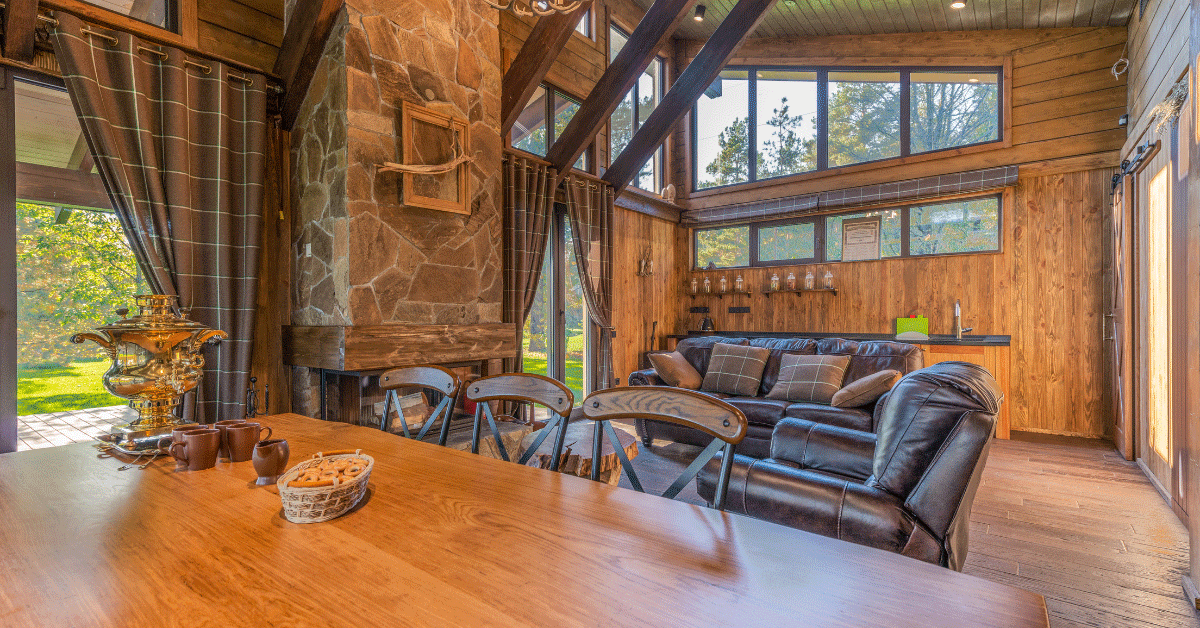
Traditional Indigenous-inspired design draws from the rich histories and practices of Indigenous cultures. Emphasizing the use of natural, locally-sourced materials like wood, stone, leather, and hides, this design style showcases the deep connection between Indigenous cultures and the land. The architecture and layout of spaces often incorporate elements inspired by traditional Indigenous dwellings such as longhouses or tipis. Though adapted to modern living standards, these elements resonate deeply with the past, reinforcing the sense of history and tradition.
Patterns, designs, and motifs borrowed from various Indigenous cultures play a significant role in traditional Indigenous design. From animal motifs to geometric patterns or symbols representing stories or beliefs central to the culture, the inclusion of traditional artwork—totem poles, masks, pottery, or weaving—adds layers of cultural depth and context to the design. Each piece carries a specific cultural significance or tells a story, serving as a living testament to the rich and diverse histories, traditions, and artistic expressions of Indigenous cultures.
Product Recommendations
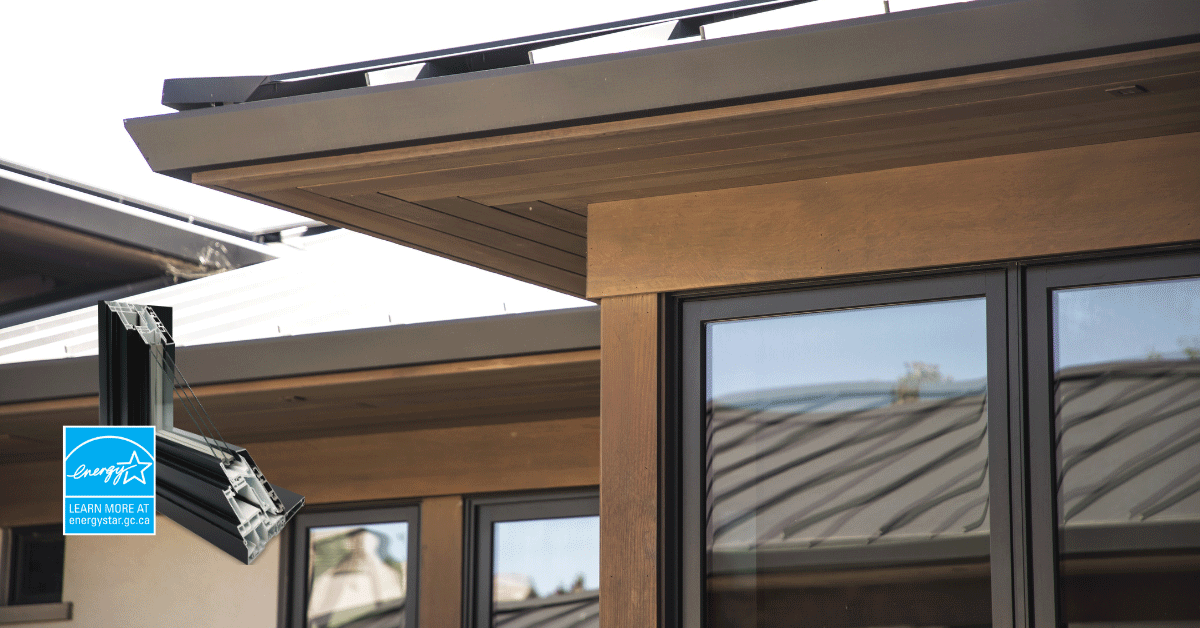
For homeowners leaning towards a traditional Indigenous-inspired design, we recommend the JELD-WEN Northern Tri-Pane Collection of windows. Their ENERGY STAR certification guarantees significant energy savings and environmental benefits, aligning seamlessly with a design style rooted in respect for the natural world.
The superior energy efficiency of these windows transcends cost savings, significantly enhancing your home's comfort and significantly reducing exterior noise. This allows for a serene indoor environment that echoes the tranquility embodied in a traditional Indigenous design.
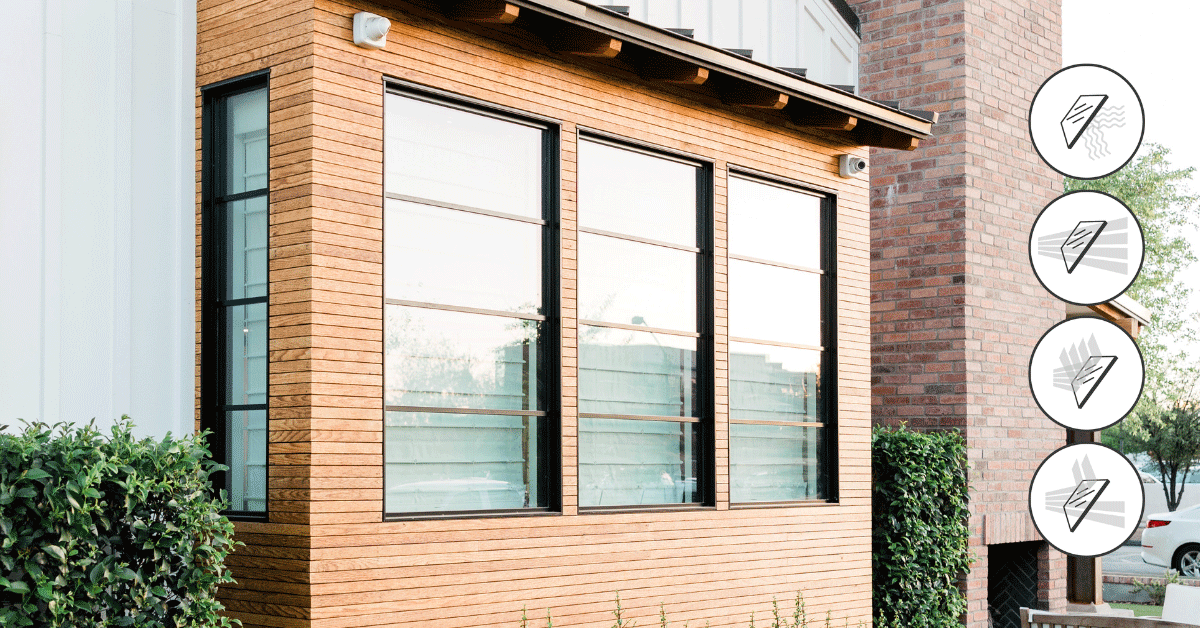
To further optimize energy savings and minimize your environmental footprint, consider our premium Low-E glass coatings. Options like SunFlow, SunStable, SunResist, or HeatResist will help regulate your home's interior temperature, effectively reducing energy costs and consumption.
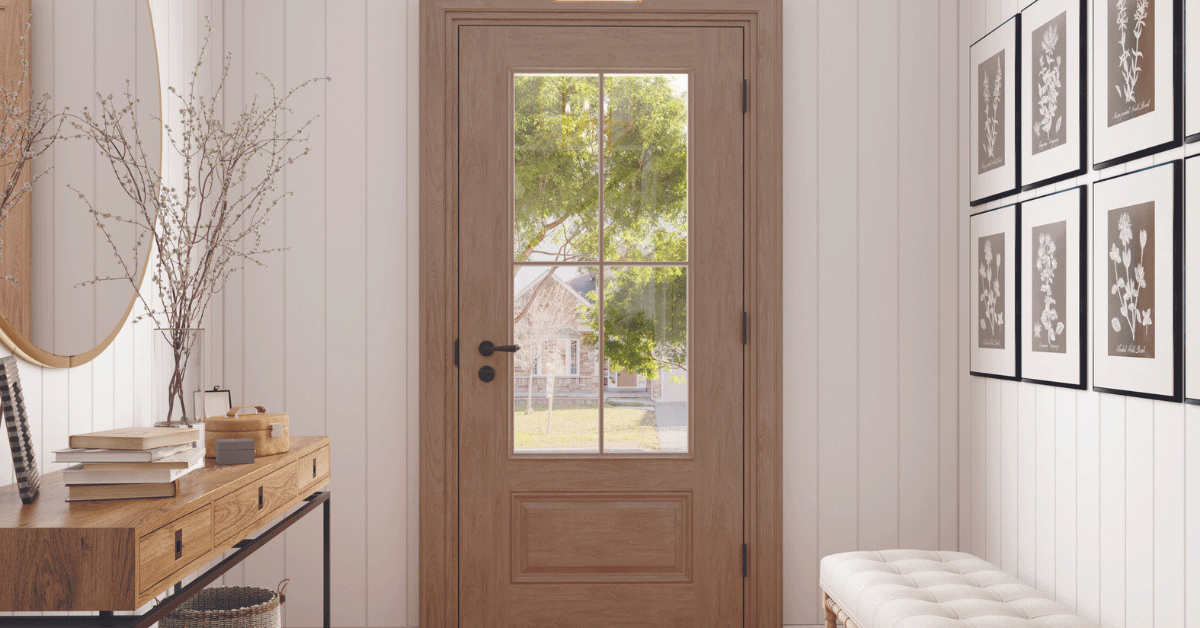
To complete your Traditional Indigenous-inspired design, consider combining your choice of JELD-WEN windows with our selection of fiberglass exterior doors. Skillfully designed, these doors emulate the aesthetics of genuine wood while offering the endurance and efficiency benefits of steel. They provide a compelling blend of visual appeal and practicality, featuring detailed grain patterns and a vast range of stain options, while also resisting shrinkage, swelling, and warping.
These fiberglass doors also shine in their insulation capabilities, courtesy of their polyurethane foam core. Paired with the energy-efficient windows from the JELD-WEN Northern Tri-Pane Collection, they significantly amplify your home's overall energy efficiency. Such a comprehensive integration offers considerable energy cost savings over time. Furthermore, the robust material of these doors provides exceptional resistance against dents, scratches, and rust. Their solid construction is designed to resist forced entry, ensuring a secure home environment.
Opting for the JELD-WEN Northern Tri-Pane Collection of windows along with our fiberglass doors offers more than just a visually pleasing enhancement to your space. It encourages a sustainable, energy-conscious lifestyle that resonates with the principles of Indigenous-inspired design and highlights a deep respect for the land and its resources. By prioritizing energy efficiency and sustainable materials, you reflect a commitment to environmental conservation, embodying values central to traditional Indigenous cultures.
Modern Design
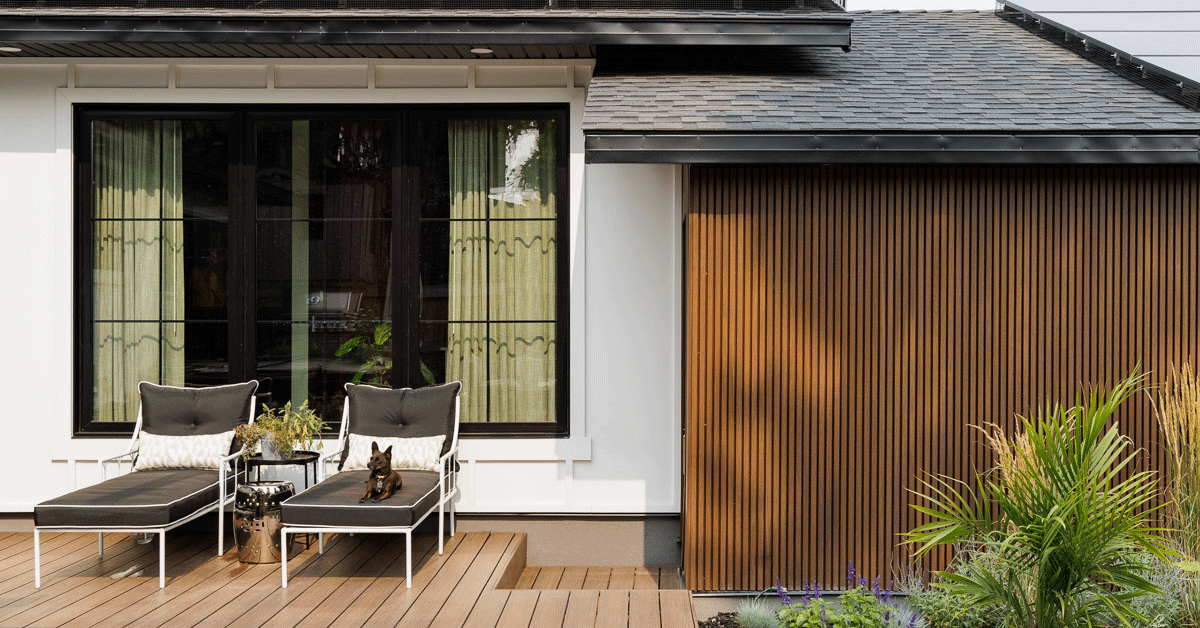
Modern Indigenous-inspired design forms a unique amalgamation of contemporary aesthetics and traditional elements. This fusion can manifest in various ways—for instance, combining modern lines and forms with Indigenous motifs or materials. Imagine a minimalist wooden table adorned with traditional inlay or a sleek, modern couch draped in fabric featuring Indigenous patterns. Such designs celebrate the complexity of Indigenous art while embracing the simplicity and elegance of modern design.
This design approach reinterprets traditional symbols and motifs in a modern context. For example, a traditional color palette might find new expression in a modern abstract painting, beautifully merging old and new. The emphasis modern design places on sustainability aligns with the Indigenous reverence for nature, leading to the use of eco-friendly materials, the incorporation of green spaces, and the adoption of renewable energy sources.
Modern Indigenous-inspired design is not about mimicking traditional structures; it embraces their principles. A home designed to harmoniously blend with its surroundings embodies this concept, reflecting the ethos of traditional Indigenous dwellings while employing a contemporary architectural style. In these ways, modern Indigenous-inspired design forms a bridge between the time-honored traditions of Indigenous cultures and the evolving aesthetics of the modern world.
Product Recommendations

In a modern Indigenous-inspired design, natural light and the connection to the outdoors play vital roles. The newly launched JELD-WEN JWC8500 window series, with its 26% lower profile frame than conventional models, is designed to provide more window space, thereby allowing more light and offering expansive views of the outside world.
The JWC8500 series aligns with the principles of modern Indigenous-inspired design by combining sleek aesthetics with a profound connection to nature. Its reduced frame profile minimizes visual interruption, creating a nearly seamless integration between your indoor space and the natural landscape beyond.
Available in both dual and triple pane variants, you can choose the insulation and energy efficiency level that suits your needs best. Dual-pane windows offer adequate energy efficiency for milder climates, while triple-pane windows provide superior insulation for harsher climates, further reducing your home's energy consumption.
Additionally, the JWC8500 series comes in six bespoke colors, including earthy hues like white, pebble, slate, brown, and black. These naturally-inspired colors can harmoniously blend with both your interior and exterior design, enhancing the overall aesthetic while subtly paying homage to the natural world—a concept central to Indigenous culture.
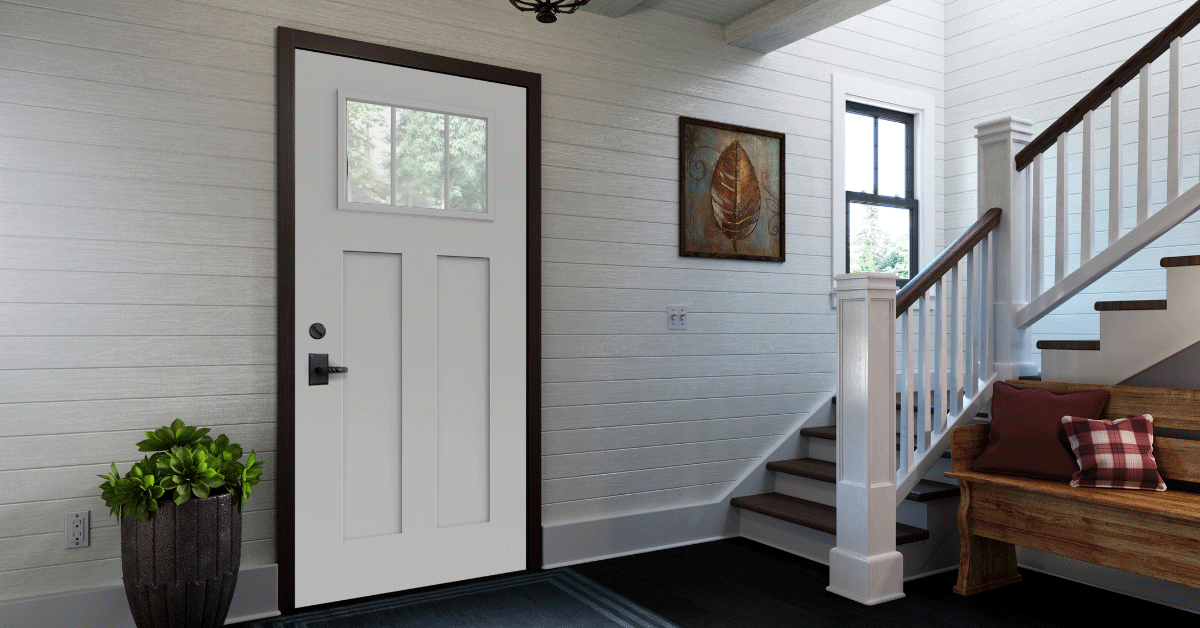
These doors are an elegant addition to any interior space, marrying the contemporary appeal of glass with a choice of diverse designs. The glass panel doors are available in full, 3/4, and 1/2 panel options, allowing you to control the level of transparency and privacy in each room.
Depending on your specific needs, you can choose between clear and frosted glass variants. Clear glass doors allow maximum light transfer, contributing to a bright and open interior. They create an illusion of larger space and maintain a visual connection between rooms. On the other hand, frosted glass doors diffuse light and offer more privacy while still permitting a substantial amount of natural light to flow through, creating a warm and inviting atmosphere.
The JELD-WEN JWC8500 window series, fiberglass exterior doors, and glass panel interior doors come together to create a holistic design solution, embodying the essence of a modern, eclectic aesthetic that embraces efficiency, security, and personalized design. This approach doesn't simply replicate traditional structures—it captures their spirit. It's about establishing a deeper connection with nature and promoting an energy-conscious lifestyle, which are all integral to the principles of Indigenous-inspired design.
Remember, both traditional and modern Indigenous-inspired designs should respect and honor the cultures they draw inspiration from. Avoid cultural appropriation, strive to understand the significance and context of the elements you're using, and support local Indigenous artists, communities, and creators when purchasing items for your home wherever possible.
Explore Related Posts












